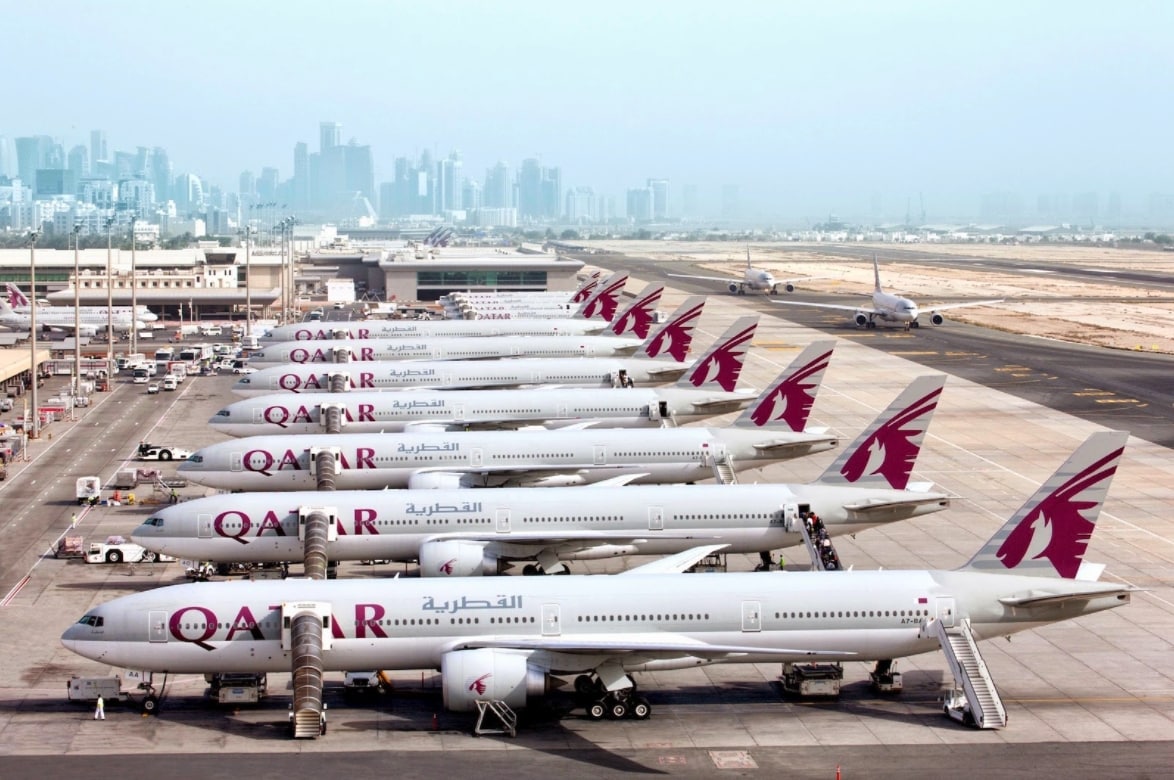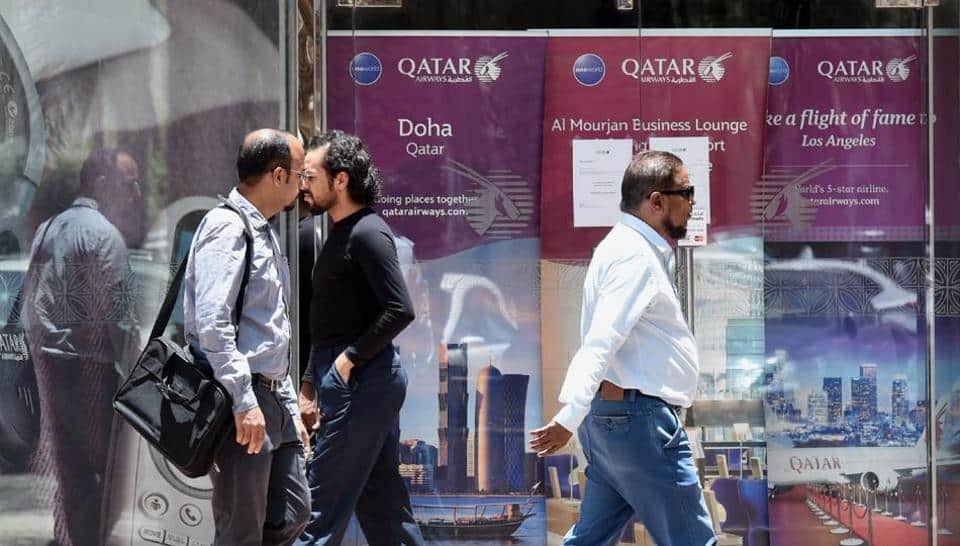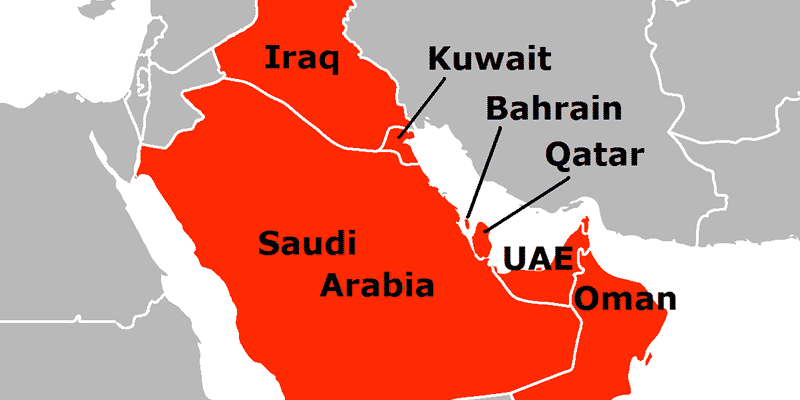Qatar is a small state in western Asia rich in LNG which is temporary isolated and cut off by the most powerful countries in the Arab world after years of tension. Its Gulf neighbors have blamed Qatar for supporting terrorism, and the withdrawal of their ambassadors has thrown Qatar into deep crisis. Gulf Cooperation Council consisting of 6 member nations has encountered a number of difficult challenges. Their primary goals of integration and interdependence have been shaken and the bonds and ties have been disturbed. The rivalry between Saudi Arabia, Bahrain, Kuwait, Oman and the UAE vs Qatar has always been present since the days of British occupation. The constant interference of Iran and Iraq in relations between Saudi Arabia and the other GCC countries made things even worse. In fact, GCC union was never strong and it formed in the need to protect from the emerging dangers rather than economic stability and prosperity.
Qatar income history
Qatar became very rich quickly since it wisely reinvested the gained energy money and diversified its economy. Their reserves and US support have also influenced their financial and economic stability until recently. In the world of economy, they have been well known as a country with the highest per-capita GDP of $130 000. With the wealth that personally belongs to 280 000 citizens, the income history shows that it has been the world‘s greatest LNG exporter. This fact set it apart from its GCC neighbors and enabled its breakup with dominant Saudi Arabia. That‘s why the entire region has been looking for the opportunity to clip its wings!
What is the current situation?
Qatar today is subjected to severe sanctions in 2017. by its Gulf neighbors, with Saudi Arabia as their leader. Qatar‘s destabilization of the region and accusation for terrorism has introduced economic and diplomatic punishment measures that will certainly leave some serious consequences. Major Qatar Airways lines have been suspended, import stopped and expatriates expelled. There is a fear that the current situation may push the entire region into much serious diplomatic crisis.

Qatar crisis explained
The countries that initiated the sanctions against Qatar in 2017 are the countries led by Sunni Muslims whose major threats are political Islam, jihad, and Iran. As neighboring countries, Iran and Qatar share the world‘s largest LNG field, and the Gulf feels threatened by their good relationships. Also, they are threatened by Qatar‘s support of Islamist movements in Syria, Egypt, Libya, and Gaza. In addition, they allowed Al Jazeera to host vocal critics of Arab authorities. However, the long-term isolation of Doha and Qatar will extremely negatively affect the economy. It would be very hard to provide jobs to young people in the Gulf Arab states, cause the region has to be stable and business-friendly which currently is not the case.
The consequences of Qatar crisis on GCC residents
• The UAE will freeze the bank accounts such as Qatar Islamic Bank, Doha Bank, Qatar National Bank etc.
• Closed airspace and alternative flight routes imply longer flights and higher costs.
• Qatari are not permitted to receive the visa in UAE. Also, they have to leave the country within 14 days and are not allowed to extend visa in Bahrain, UAE, and Saudi Arabia.
• UAE have issued massive fines and sanctions for those who support Qatar in the ongoing crisis.
• Qatari network (Al Jazeera, beIN Sports) have been interrupted and their offices in the Gulf countries have been closed.
US reaction to the crisis
The simmering 10 years tensions between Qatar and Arab countries have escalated further with the coming of Trump. The US plans new policy, supporting the Sunni powers against Shiite powers. Obama kept lines open not wanting to interfere in their sectarian wars letting them come up with their own solution. Trump‘s visit, however, encouraged the Sunni powers to openly express their confrontation with Iran and to remove Qatar from the Council.
How the crisis affects the forex market?
Qatar riyal has experienced a serious pressure due to increasing tensions in the Middle East, and there‘s a fear of endangering the Gulf states‘ pegs to the dollar. The Qatari currency has been at the strict rate (QR3.64 a dollar), but now dollar riyal exchange rates have almost doubled and hit the levels last seen in 2008. when the oil price collapsed. A prolonged dispute in the Gulf region can seriously affect the forex market and the pressure on riyal if the reduced trade and withdrawing of the investors continues. The forex shows that the power of dollar questions the capacity to maintain pegs in these critical times. Also, there is a significant loosing of dollar within the last 7 months. The Gulf currency pegs are further affected by the enormous wealth funds. Further pressure on riyal’s conditioned by the volatile oil price. However, a long-term conflict and macroeconomic disturbances can seriously affect tourism, trade, growth, and inflation (the drop of currency is down by 10% at the moment).

Conclusion
At this moment, the solution to Qatar crisis is not around the corner. Qatar is given 10 days to reconsider the list of issues such as the relationship with Iran, handing over the terrorists, funding the terrorist groups. Ten days time is little time to come up with solutions to 13 issues of Gulf‘s demand list. Qatar‘s behavior shows that it does not have any intentions of negotiating with Saudi Arabia and Arab nations to solve the occurring crisis. Qatari Ambassador Meshal bin Hamad Al Thani stated that Qatar feels no pressure to resolve the crisis quickly. Furthermore, UAE Foreign Minister Anwar Garagash accused Qatar of leaking the list of demands, which will additionally prolong the Qatar crisis. If Qatar refuses to fulfill the demands by the deadline, Arab countries will continue with the restrictions – they will ban the access to the land, sea and air routes. In addition, Qatari Al-Jazeera fights to survive, and they consider its close-down a severe suppression of freedom and democracy. This Saudi Arabia-UAE battle against Qatar will certainly continue since it is a struggle for regional power where nobody wants to drawback.

